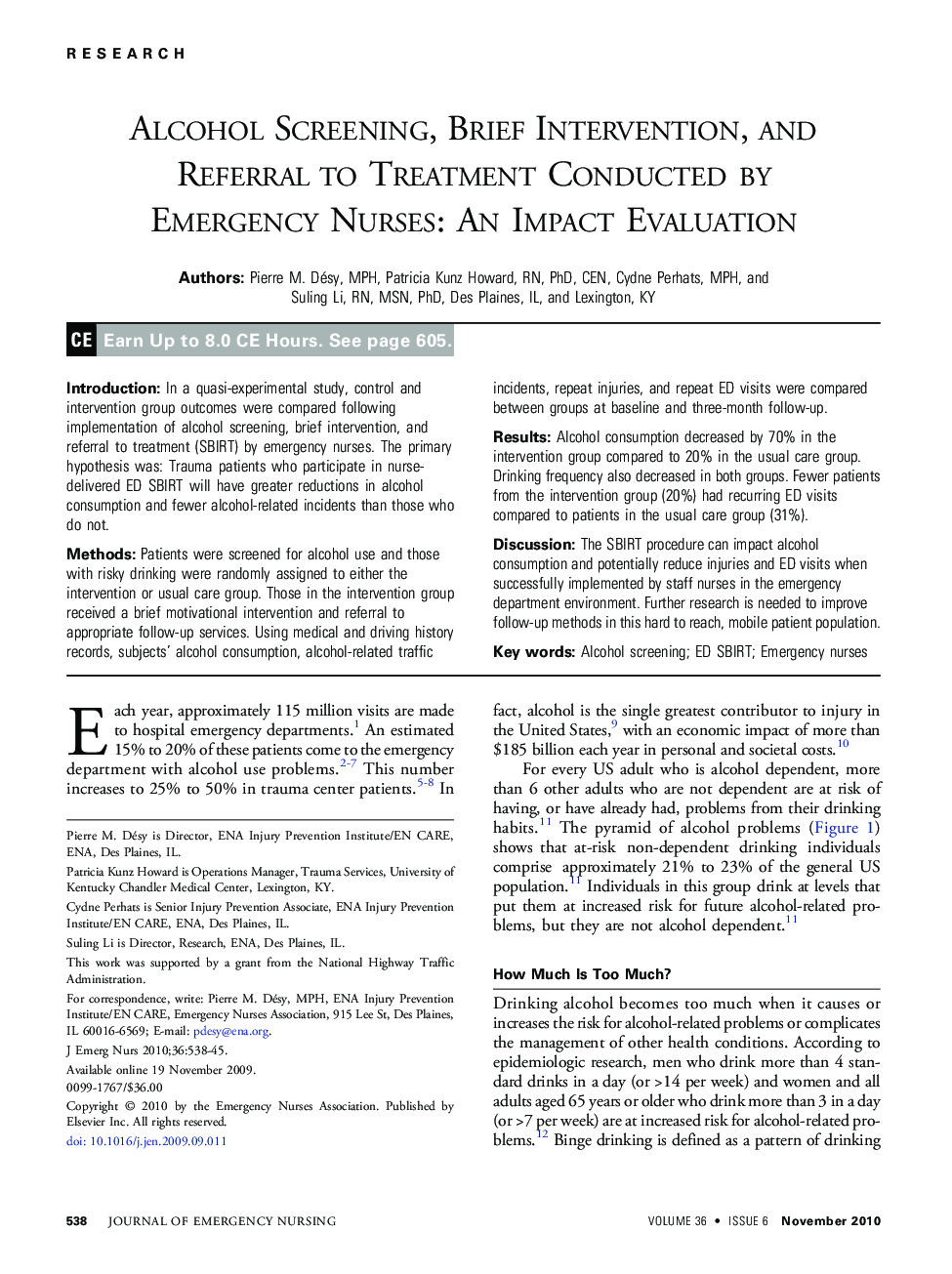| Article ID | Journal | Published Year | Pages | File Type |
|---|---|---|---|---|
| 2610640 | Journal of Emergency Nursing | 2010 | 8 Pages |
IntroductionIn a quasi-experimental study, control and intervention group outcomes were compared following implementation of alcohol screening, brief intervention, and referral to treatment (SBIRT) by emergency nurses. The primary hypothesis was: Trauma patients who participate in nurse-delivered ED SBIRT will have greater reductions in alcohol consumption and fewer alcohol-related incidents than those who do not.MethodsPatients were screened for alcohol use and those with risky drinking were randomly assigned to either the intervention or usual care group. Those in the intervention group received a brief motivational intervention and referral to appropriate follow-up services. Using medical and driving history records, subjects' alcohol consumption, alcohol-related traffic incidents, repeat injuries, and repeat ED visits were compared between groups at baseline and three-month follow-up.ResultsAlcohol consumption decreased by 70% in the intervention group compared to 20% in the usual care group. Drinking frequency also decreased in both groups. Fewer patients from the intervention group (20%) had recurring ED visits compared to patients in the usual care group (31%).DiscussionThe SBIRT procedure can impact alcohol consumption and potentially reduce injuries and ED visits when successfully implemented by staff nurses in the emergency department environment. Further research is needed to improve follow-up methods in this hard to reach, mobile patient population.
